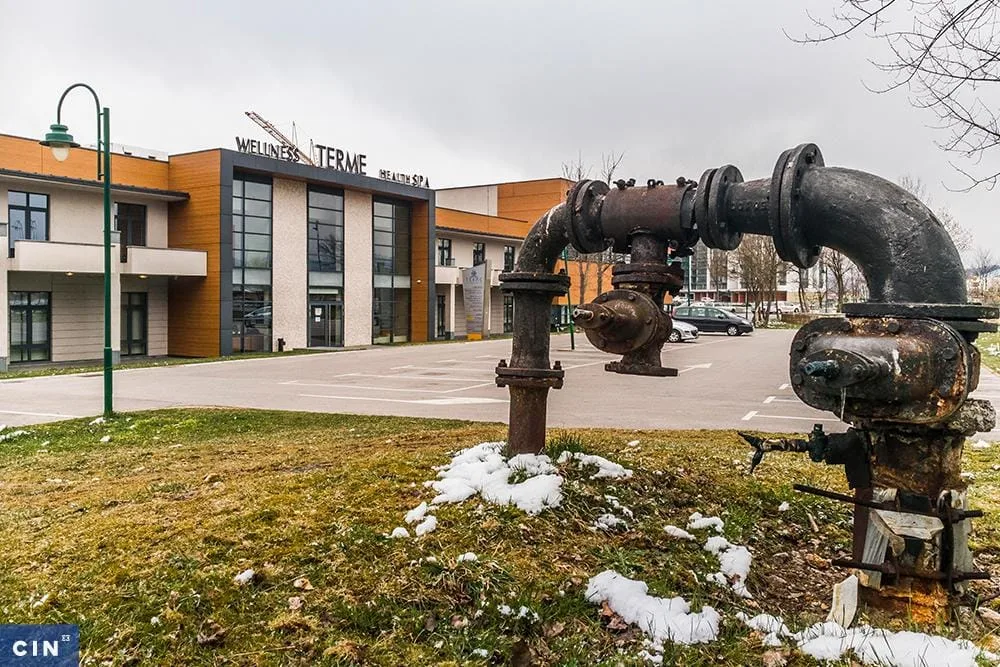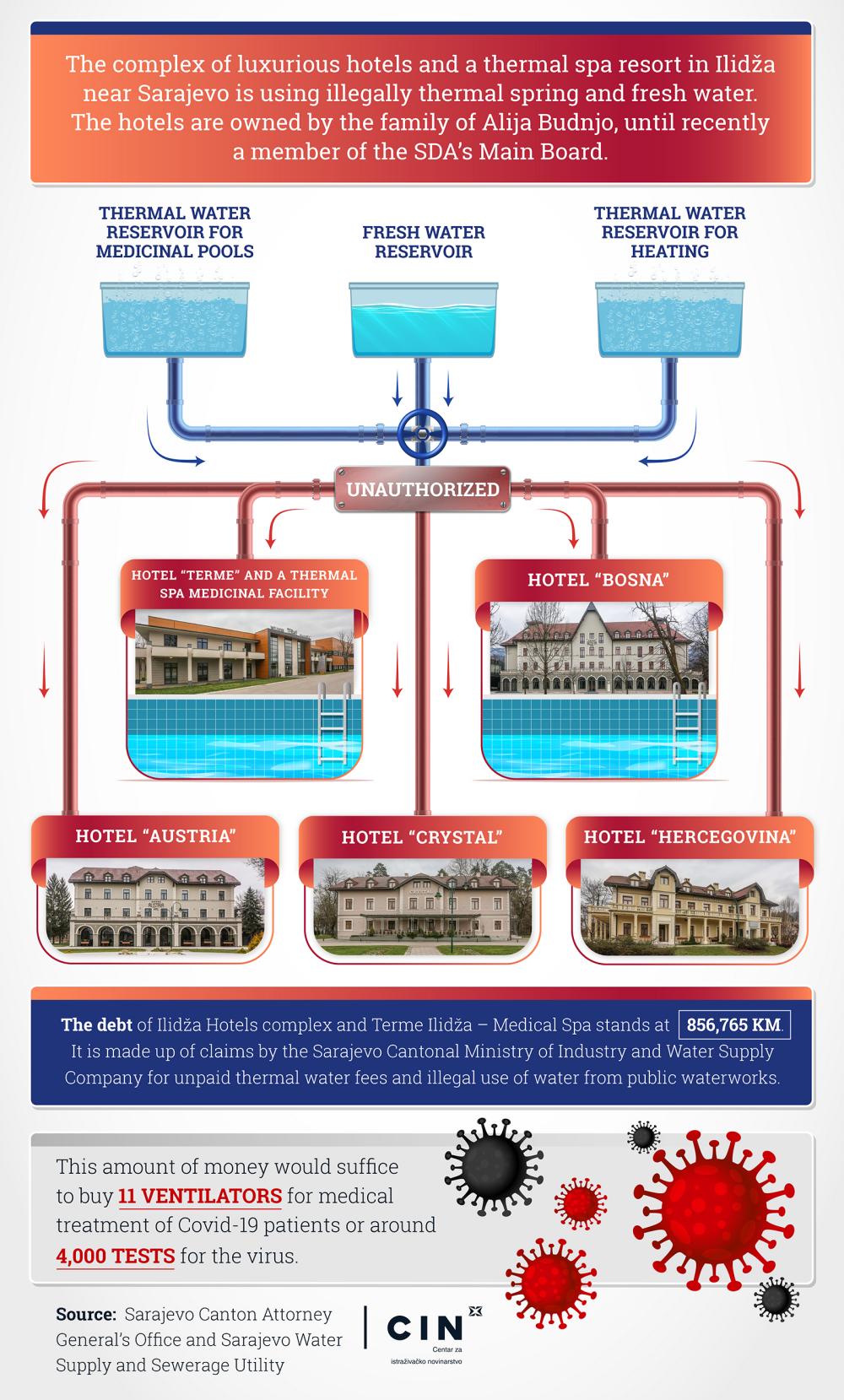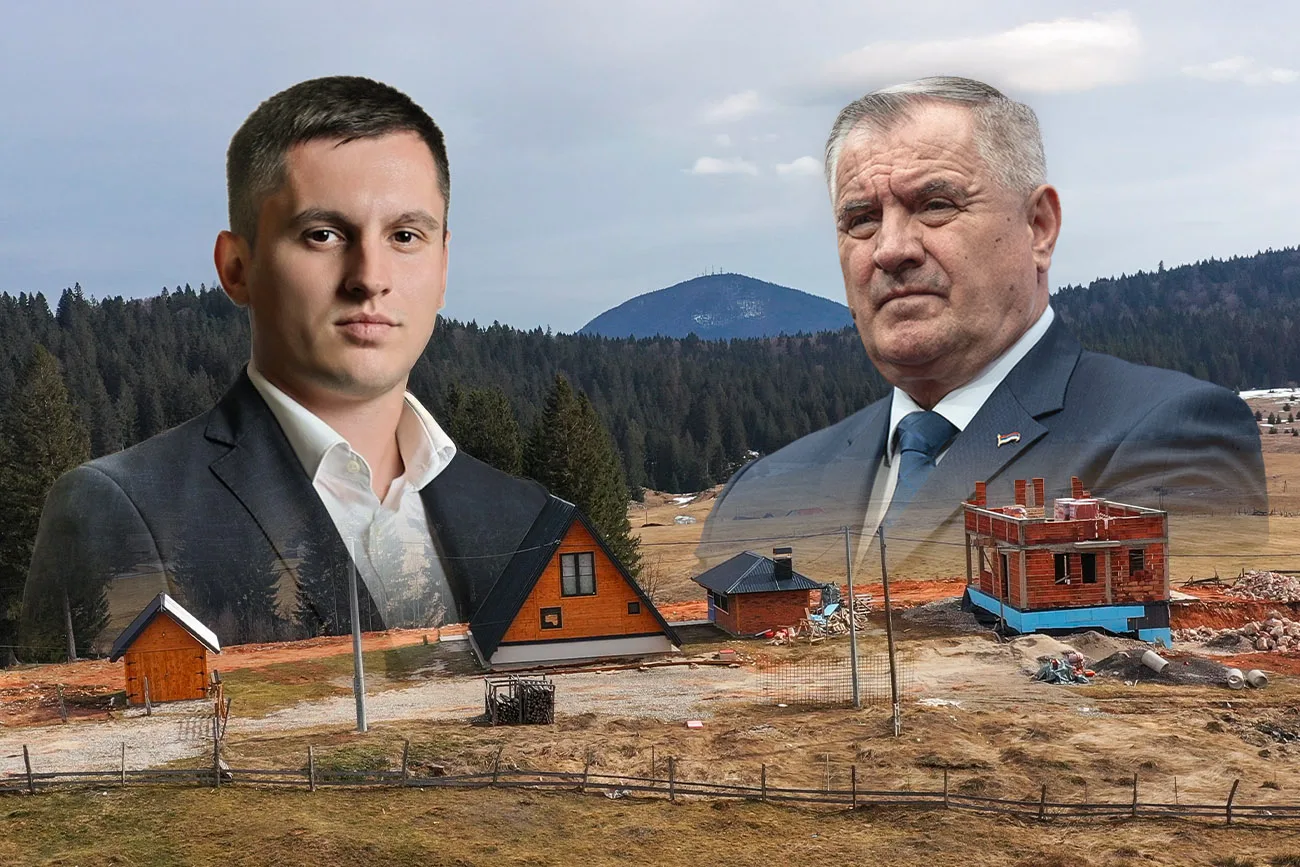A luxury hotel complex and spa resort in Ilidža, near Sarajevo, the capital of Bosnia and Herzegovina (BiH), are using illegally thermal spring waters, while avoiding to pay concession and other water related fees. Over the past 16 years, this tourist complex has taken advantage of thermal spring water from two natural reservoirs to heat five hotels equipped with swimming pools and conference rooms, and use the water’s medicinal properties for spa therapies.
Two companies — “Hoteli Ilidža” and medical institution spa “Terme Ilidža” — are managing this complex. The family of Alija Budnjo, until recently a member of the Main Board of the Party of Democratic Action (SDA) owns the majority interest in them. For many years, his party peers were at the helm of the Sarajevo Cantonal government, which did nothing to make him pay for the use of this common good.
On the contrary, the authorities have contributed to the creation of legal chaos by enacting contradictory laws and ordinances. Businessmen have used this as an excuse to avoid paying their dues.
Meanwhile, the government institutions have continued to do business with these firms, and used taxpayer money to subsidize medical treatments in the spa and rent the conference halls for special events and seminars. For example, the Sarajevo Cantonal Health Care Fund and the Ministry for Veterans’ Affairs concluded contracts with the hotels worth 9 million KM during those 16 years, according to the records acquired by reporters from the Center for Investigative Reporting in Sarajevo (CIN).
Over this period, the five hotels have earned 89 million KM in revenue, out of which at least 8.5 million KM in profit. Such a handsome profit might be due in part to the owners’ unauthorized use of the thermal spring water for heating of premises and showers.
The Cantonal Government filed the first lawsuit only in 2016 against the two firms for failing to pay some of the fees. The lawsuits are ongoing, while the owners continue to illicitly exploit these common good resources. Due to the Government’s failure to file lawsuits timely, much of the debts will have to be written off because the statute of limitations had expired in the meantime.
Budnjo refused to be interviewed for CIN saying that he had no time for it on account of problems with the COVID-19 virus. “This water has been used back in the day even by the Romans,” said Budnjo. “Over all these centuries, these waters have been used and you are now putting it under the spotlight.”
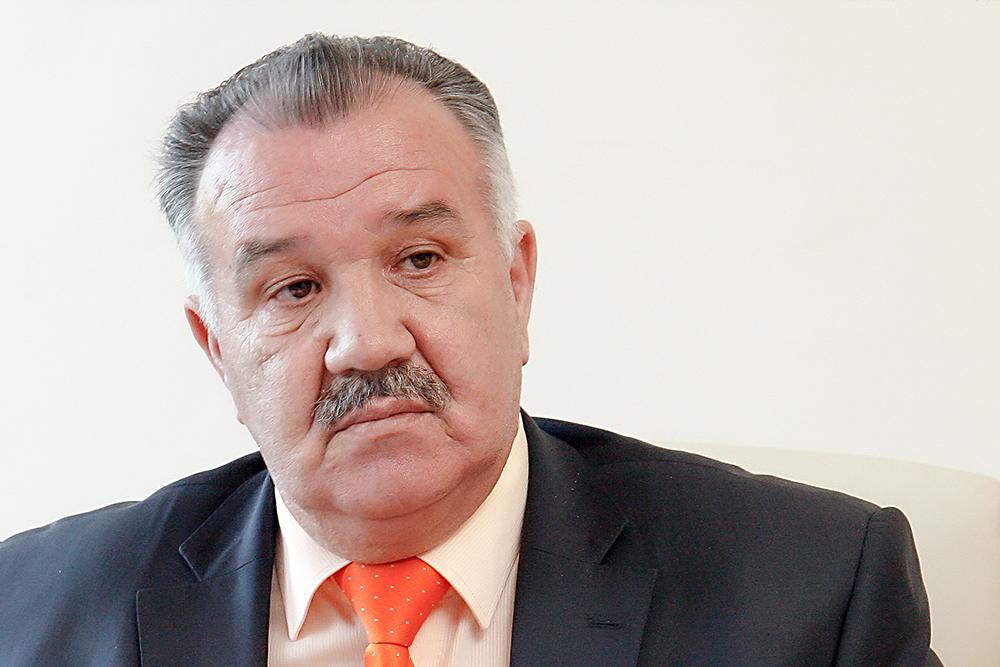
Water for Nothing
The owners of the Ilidža hotel complex have been using thermal water springs since 2004, even though they should’ve signed concession contracts with the Sarajevo Cantonal Government to pay a one-time fee, as well as annual concession fees. But this has not happened.
On top of that, the River Sava Basin Agency let these businessmen use thermal spring water sources between 2010 and 2015, even though they were not paying mandatory water fees.
Both types of fees — concession and water licenses — are calculated based on the volume of water used. The proceedings from these fees are later divided between the Federation of BiH, Sarajevo Canton and Ilidža municipality. However, since the authorities did not check the usage at the source and the hotel’s owners have not used a water meter, it is unknown how much water has been taken.
The Head of the Water Licensing Department at the Sava River Basin Agency, Haris Ališehović, said that the firms submitted a study conducted by Hidro-Engineering Institute Sarajevo and an expert witness’s opinion to request a license. The witness stated in his opinion that the meter was not functioning due to deposits of water minerals on the meter.
“I disagree, but I’m not an expert witness,” Ališehović told CIN.
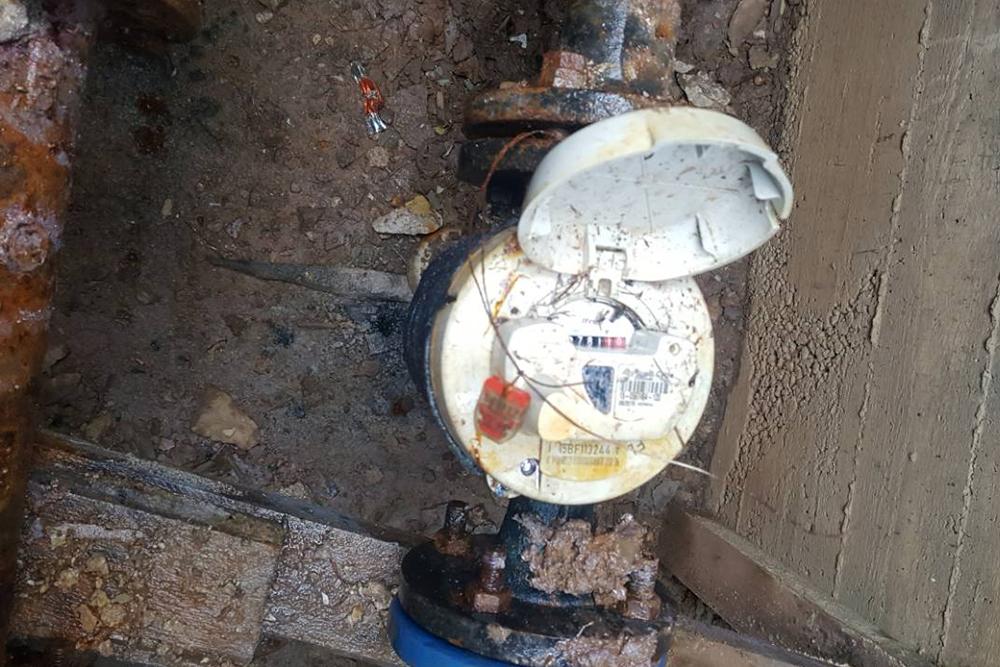
The Agency officials say that they knew that they had to accept the expert’s opinion even though they were aware of a case where a water meter at another source functioned without any problems. It was used by a company “Termalna rivijera Ilidža” based on a 2004 concession contract. Waters from all sources have the same properties.
Ališehović told CIN that a reading device for the meter could have been installed in a way so that it would not be affected by the water, while a fee could’ve been calculated also based on the source’s capacity. However, the Cantonal Government and the Agency have never attempted to do this, even though they had known that the FBiH Ministry of Energy, Mining and Industry established that these sources produce, on average, 1.34 million cubic meters of water annually, or 43 liters in a second.
“Frankly, I have no idea since when they’ve been using them,” says a former Sarajevo Cantonal Prime Minister Elmedin Konaković. During his term, the government filed lawsuits against the companies.
Konaković said that was the reason why they had never established the amount of damages to the budget because of unpaid fees. “It is impossible to add it all up during this timeframe, but I guarantee you that it must amount to an excess of several millions.”
“Volcano” on Ilidža
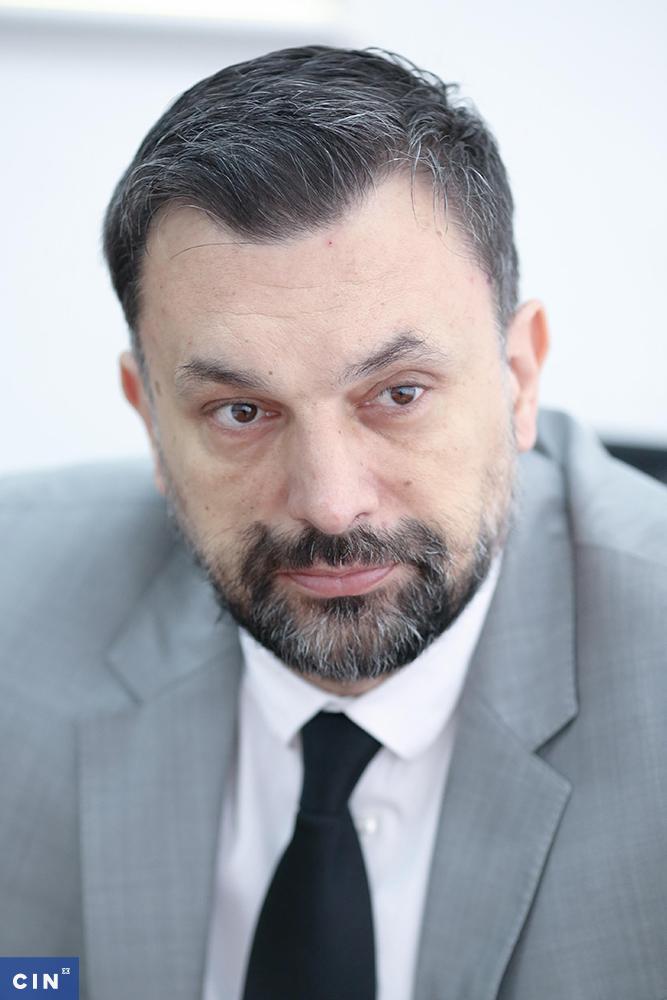
After the FBiH Water Inspectorate warned the companies of their legal obligations, “Hoteli Ilidža” and “Terme Ilidža” submitted paperwork to obtain a concession license in 2010. However, the contract was not signed because the firms failed to attach all the required documents. According to the Sarajevo Cantonal Ministry of Industry, which represents the government in these contracts, the firms have never attempted to finalize the concession procedure.
Nevertheless, the firms continued to use the thermal spring water. During that year, the firms informed the Ministry how the thermal springs were “active volcanoes” posing a threat both to the Municipality and the Canton. The businessmen warned the government that they would dismantle the equipment which kept the thermal sources under control if there was more pressure on them to pay fees “and then the ministry would be held accountable for the consequences caused by an active volcano.”
They also requested financial aid “for the benefit of not only ‘Hoteli Ilidža’ but also for the benefit of Ilidža municipality, Sarajevo Canton and beyond.”
However, it must be pointed out that during the 1992-1995 war in BiH, this “volcano” i.e. the thermal source, was not being used or managed, but nothing bad came out of it.
Until 2011, Sarajevo Canton used the Law on Concessions which had no sanctions for firms which operated without a required contract. That year, a new law was enacted which ushered in sanctions of between 5,000 and 15,000 KM for rogue companies.
However, instead of starting to apply the Law, eight months later, the Sarajevo Cantonal Government passed an Ordinance on Water Exploration Fees which made it possible for companies to use natural resources without a concession contract if they paid a fee of 1.5 KM per cubic meter of water, or 1.5 percent of a firm’s annual revenue. The Government then called on the two companies from Ilidža to start paying fees. Between mid-2013 and 2018, they paid a total of 48,000 KM in fees.
The previous Cantonal Industry Minister Haris Bašić said that the firms calculated these fees themselves, and this was 15 times less than the Government’s calculation. Because of the firms’ failure to pay fees in the amount of 726,000 KM, the Sarajevo Cantonal Office of the Attorney General filed four lawsuits against them. The final amount of damages should have been established by the Municipal Court in Sarajevo based on an expert witness’s opinion. The Cantonal Prosecutor’s Office filed a motion to ban the use of water from thermal sources until the ruling was handed down, but the Court refused the motion.
According to statements from Cantonal officials, the authorities struggled to collect debts from the users who did not abide by the Ordinance, and it was abolished in the beginning of 2018. Bašić and Konaković say that the reason the Government abolished it was that the Ordinance was at odds with the Law on Concessions and thus the Government kept losing cases against users in court.
“What was on someone’s mind when they set out to enact the Ordinance, when the Law clearly sets out how concession rights should be obtained is beyond me,” said Konaković. “So, the only thing to do was to continue applying the Law and prohibit users from exploration of water resources.”
Until the beginning of 2018, he was the Cantonal Prime Minister and Vice-President of the SDA’s Cantonal Board. After a disagreement with the leadership, he left SDA and formed a new political party.
Konaković said that Budnjo exerted a powerful influence over civil servants in various government agencies through his role on the SDA’s Cantonal Board.
“For example, thirty of us are discussing an issue and we address it with a show of hands,” explains Konaković. “Then this guy pops into the president’s (office) for a coffee, and they change the decision and appoint another minister. That minister, of course, is now at the beck and call of these businessmen.”
Water Licensing with Fingers Crossed
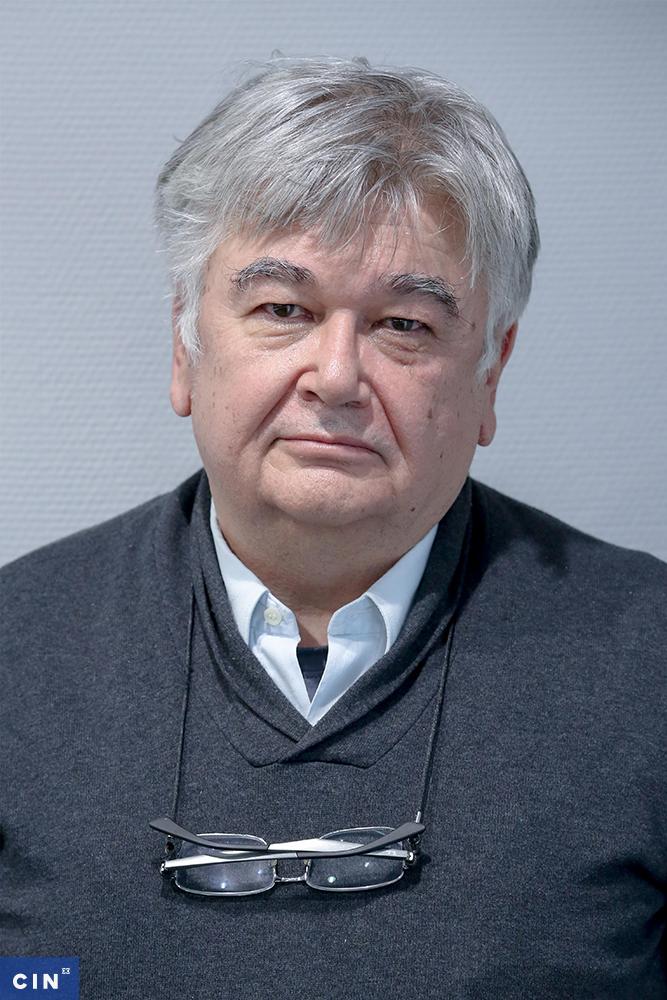
In 2010, Sava River Basin Agency issued a permit for water extraction to “Hoteli Ilidža” and “Terme Ilidža” even though they didn’t have a concession agreement over the use of the thermal spring sources.
Konaković and Bašić said that this shouldn’t have happened without a concession agreement because it was not in line with the procedures and the Law, but the Agency’s Ališehović disagrees.
“At the time, some companies failed to submit all documents necessary to meet the requirements to obtain a valid water permit,” said Ališehović. “Thus, we issued (them) conditional water permits.”
The permits were up for renewal in 2015, or in five years’ time. They required Budnjo’s firms to conclude concession contracts with the Cantonal Government; to erect protection zones around the sources, and to file monthly reports with the Agency about the volume of extracted water, as well as pay thermal water fees.
“They did nothing,” said Ališehović.
Two years after the conditional water permit expired, “Hoteli Ilidža” and “Terme Ilidža” filed for a new permit. This time the Agency refused them, saying that they also had never obtained concessions for thermal sources, among other things.
The businessmen say that they submitted the paperwork for concessions licenses, but they failed to sign an agreement because the Cantonal Ministry of Industry was late in reviewing their submissions. However, the Ministry officials disagree and say that the two companies ignored their prodding to submit requests, the last time in 2015 on two separate occasions. The following year the Ministry abolished all concession procedures because it had filed lawsuits to collect fees against defaulted users.
Since the Agency held its ground, at the end of last year, over the course of one day the firms sent their reports about the amount of water they had used between 2010 and 2015 and decided to pay 9,600 KM in fees.
The Agency didn’t accept these reports, stating that the provided volume of water is insignificant and that it was impossible that they’d spent the same amount each year.
“I doubt that the same volume of water can be constantly extracted over any period,” said Ališehović.
Aida Salahović from the Agency’s Department for Water Fees, said that they didn’t have the authority to collect on overdue fees. They could only send warnings and report users to the FBiH Water Inspectorate which, she added, has filed lawsuits against the Ilidža-based firms.
The Inspectorate couldn’t give CIN reporters any information about the inspections of companies because all employees were busy on tasks related to fighting the COVID-19 virus. (Check spelling of COVID)
At the end of last year, in order to establish the facts on the ground, the Agency officials attempted to enter the hotels’ premises, as well as the spa, together with the FBiH Water Inspectorate officials and an expert witness. The witness was supposed to determine the usage over the previous five years so that the Agency could correctly bill its users over that period.
“However, at the agreed time, the owners waited for us with their lawyer and prevented the expert witness from performing this task — the Water Law stipulates that this expertise can be done by legal entities,” said Salahović. “However, according to the Water Inspectorate’s by-laws, a physical person may be commissioned to perform the job. They (owners) cited the Water Law and banished the expert witness from physically approaching, to check.”
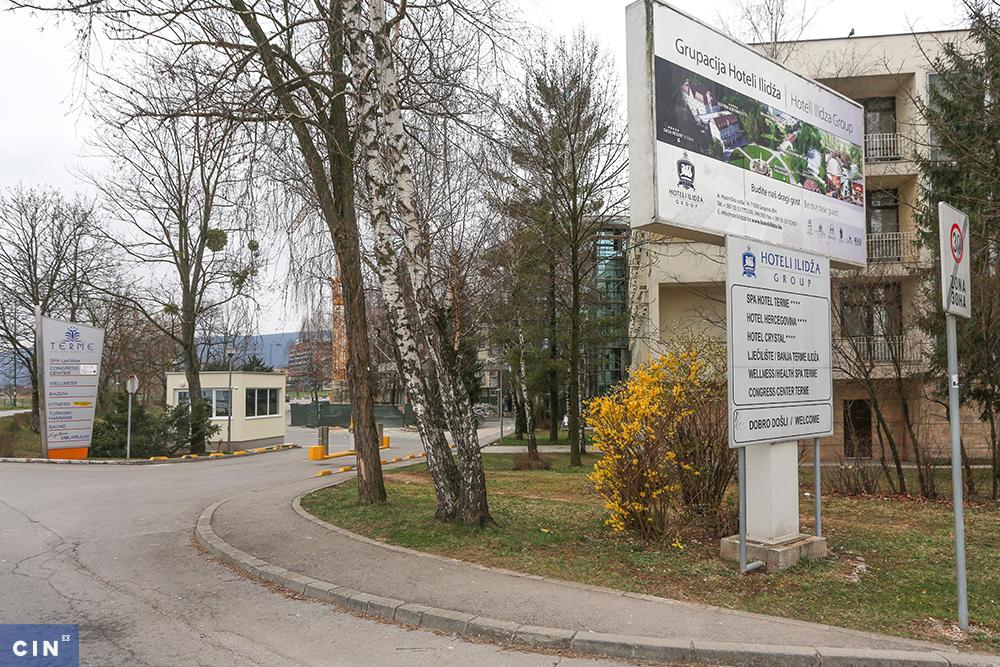
Fresh Water Reservoir Without Permits
In the past, businessman Budnjo also prevented public officials from accessing his facilities. The employees of the Cantonal Water Supply and Sewerage Company were not permitted to inspect claims of unauthorized use of water and the use of his wells to supply hotels with freshwater.
According to records from the Ministry of Industry, since 2018, Budnjo’s companies have been illegally using fresh water from wells drilled on the hotel complex’s compound. They told inspectors they had to do this because in the previous year they were faced with water reductions from the water company which incurred them losses. They use water from wells to provide water for the hotels’ swimming pools and restrooms. Even though they say that the water contains chloride, rooms have a warning notice prohibiting its use for drinking.
“Hoteli Ilidža” and “Terme Ilidža” have no concession nor water permit for those wells either and have paid no fees to the government.
“Frankly, they have never been in touch with the Agency to request a fresh water exploration license, so we have not even registered that piece of information,” said Ališehović.
“I have no knowledge of the volume they have been extracting, or in what way.”
Over the past two years, Budnjo has on several occasions prevented the water company employees from inspecting the claims of unauthorized use and abuse by his firms. They reported that he threatened them and refused to let them perform their job.
The water company’s employees came across tampered meters on “Hotel Ilidža” compound which indicated the unauthorized use of water from the public system, according to the company’s inspection minutes. The seal which they had installed to prevent users from turning the mechanical meter back and showing less usage was damaged.
The Hotel’s management denied accusations and claimed that the water company performed inspections without authorization. The owners refused to pay around 130,000 KM bill for unauthorized use of freshwater.
At the end of last year, the water company turned off the water supply to all of the complex’s hotels after the owners refused to allow an inspection of the installations, even though the Water Supply Company’s employees had an authorization from Sarajevo Cantonal Ministry of Communal Economy and Infrastructure.
Then “Hoteli Ilidža” promptly filed a counterclaim with the Municipal Court in Sarajevo stating that the Water Supply company failed to officially inform them about cutting them off from the water supply.
The company’s director, Enver Hadžiahmetović, said that Budnjo also complained that the workers trespassed on his property.
“Actually, we turned the water off in the public area — we have our manholes on the road, over there, in the public area,” said Hadžiahmetović. “This is how we presented it to the judge.”
However, hardly three days later, the court voided the Water Company’s decision and ordered it to reconnect the hotels back to the water supply under threat of a fine.
“Unfortunately, this is the fourth month since the court has ordered us to turn on the water,” says Hadžiahmetović. “In reality, we cannot bill them, we cannot even come to take a reading; we don’t have a right of entry down there.”



